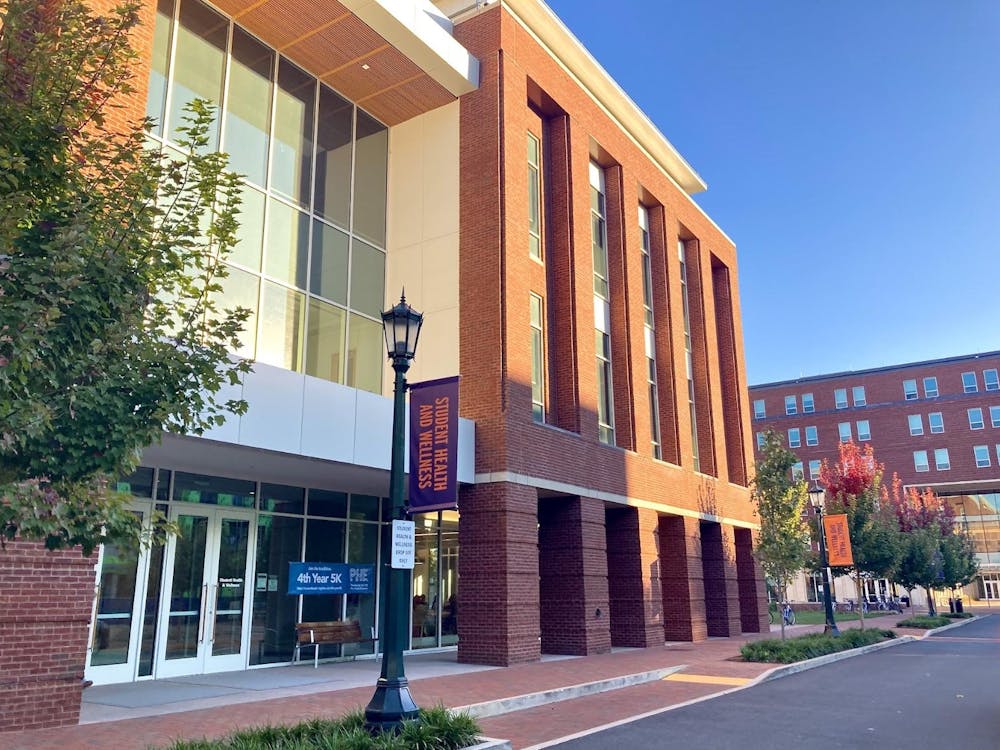Walk into a library and you'll see stacks of literary magazines. Go to the dining hall and you'll notice a flyer advertising an upcoming open mic night. Head to the bookstore and you'll find the shelves lined with professors' poetry collections.
The University offers an outstanding synergy between gifted faculty members and students. Within the community of poets, talented faculty members share their work, professors teach students and provide them with opportunities for readings, and students create outlets for themselves.
English Prof. Lisa Spaar described the unique environment in an e-mail. "I think that it's a conspiracy of an excellent faculty, smart and creative students, an intrepid extra-academe scene, a strong connection between and among these various communities, a nationally ranked creative program that regularly attracts the best graduate and undergraduate students as well as a slate of visiting writers, a wealth of undergraduate and graduate literary publications, and a culture open to interdisciplinary forays - poets and printmakers, writers and musicians, poets and fiction writers, and so forth," she said.
One of the programs that exemplifies the connectedness of poets at the University and the support available at every level is the Undergraduate Reading Series, which Spaar founded in 1995. Spaar serves as the URS faculty sponsor, but it is coordinated by undergraduates, she said.
During its 16-year run, URS "has been a very successful series," Spaar said, "bringing together graduate and undergraduate students from across the University with faculty and townspeople."\nThe most recent event in the series took place Feb. 28, the same night Monroe Hill House hosted a reading and reception to mark the publication of Morning Knowledge, the new collection of poems by Kevin Hart, professor of Christian studies and chair of the religious studies department.
Although he is not part of the English department, Hart is a dedicated and successful poet - renowned literary critic Harold Bloom described Hart as "the most outstanding Australian poet of his generation."
"I sometimes wonder if my poetry and my academic work overlap at all, and I sometimes wonder if there is any important distinction between them," Hart said. "Poems seem to be written from a point in the self that is more or less anonymous; they are concerned with desire and mystery."
Other faculty members work to develop the talents of University students, helping them to hone their skills within an academic context.
"When I work with students I try, as the art historian and critic John Berger has written, to see the direction from which my students' work is coming, and to help the student adjust the fit between what he or she may have intended for the poem and how the poem is actually behaving on the page," Spaar said. Like her colleagues, she encourages students to immerse themselves in poetic tradition and "read widely," engaging texts from differing aesthetics. "I also find that my students are as inspired (and rightly so) as much by the work and risks and experiments of their peers and the poets they are reading as by anything I might suggest to them in class," she said.
University students provide a multitude of opportunities for this inspiration to take place, coordinating poetry readings and publishing student works in literary magazines.
The current organizers of URS, fourth-year College students Kate Ringo, a student in the Area Program in Poetry Writing, and Sarah Crossland, an Echols interdisciplinary major in Storytelling - a self-designed major combining elements of fiction, poetry and folk art - have started a new series, Poets Reading Poets, in which participants are invited to read a poem by a selected author of the past. This year's featured-poet lineup includes John Keats, Emily Dickinson and Sappho.
"I think there are so many people who are afraid to read their own work who would come to [Poets Reading Poets]," Ringo said. The series draws first years, graduate students, professors and Charlottesville residents.
University students also provide opportunities for students to present original work. First-year College student Joshua Blackwell, who performs as an amateur rapper by the name Spider, works with his group the Impromptu Performers to put on open mic nights in O-Hill Forum.
"I just created my own opportunities," Blackwell said, explaining his decision to start the open mics. Held Friday evenings, the series attracts a variety of performers in stand-up comedy, music, freestyle rap and poetry.
There's something safe about the down-to-earth atmosphere of a student-run open mic night; often, new





